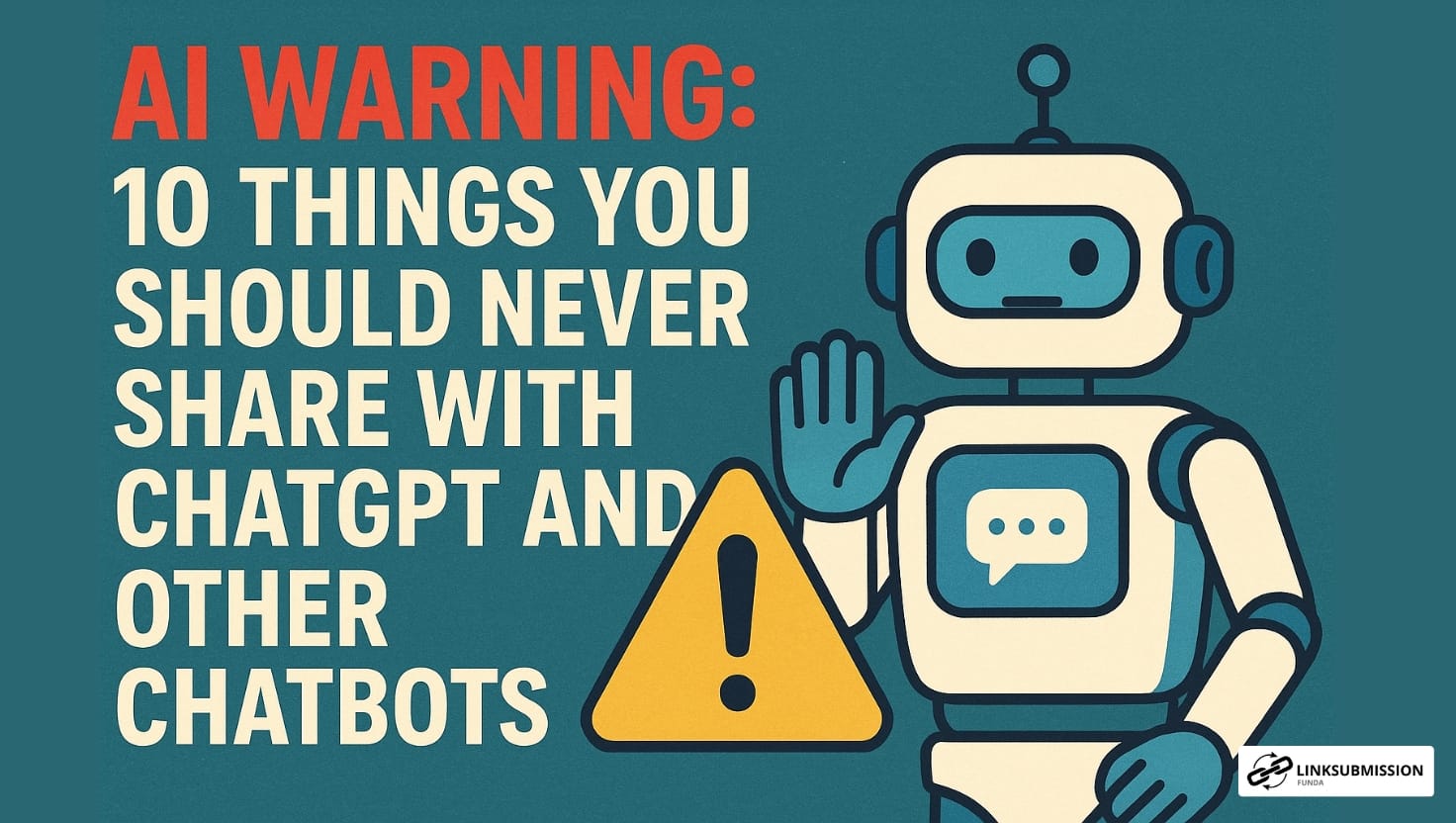Artificial intelligence-powered chatbots like ChatGPT, Google’s Gemini, or Microsoft Copilot are becoming part of our daily routines. From drafting emails to generating business ideas, these AI tools are incredibly useful. However, with convenience comes risk. Chatbots work by processing the information you share, and in some cases, this data could be stored or analyzed to improve future models. That means sharing certain types of sensitive or personal information can put your privacy, security, or even finances at risk.
To help you use AI wisely, here are 10 things you should never share with ChatGPT or any other chatbot.
1. Personal Identifiable Information (PII)
Your full name, home address, phone number, date of birth, or government ID numbers should never be shared with chatbots. This type of data could be misused for identity theft or end up being exposed in a data breach. While it might feel harmless to mention such details casually, remember that you’re essentially handing over your identity.
2. Banking and Financial Details
Credit card numbers, CVVs, online banking credentials, or even your UPI PIN should stay strictly off-limits. Chatbots are not secure banking platforms, and exposing financial data puts you at risk of fraud, scams, or unauthorized transactions.
3. Passwords and Login Credentials
Never store or generate passwords directly inside a chatbot conversation. While some password managers use AI, general-purpose chatbots are not designed to safely handle authentication data. If leaked, your email, social media, or business accounts could be compromised.
4. Confidential Business Information
Many professionals use AI tools to brainstorm ideas or draft content. However, it’s dangerous to feed in sensitive data such as unreleased financial reports, trade secrets, legal contracts, or product launch details. Competitors or hackers could gain an advantage if such information is exposed through AI vulnerabilities.
5. Health Records and Medical Information
Discussing general health concerns is fine, but you should avoid sharing your complete medical history, prescriptions, or lab results with a chatbot. Not only does this put your privacy at risk, but AI-generated medical advice should never replace consultation with a licensed professional.
6. Private Conversations or Third-Party Information
Think twice before pasting an entire email thread, chat log, or someone else’s personal details into a chatbot. Even if you’re just looking for writing help or analysis, you could unintentionally share sensitive information that belongs to others—something they never consented to.
7. Sensitive Work Documents
Uploading company spreadsheets, HR policies, or internal presentations into chatbots may feel convenient, but it could create compliance issues. Many organizations have strict data-protection policies, and violating them by feeding internal files to AI could have legal or financial consequences.
8. Location Data and Travel Plans
Sharing your real-time location, future travel itineraries, or home address details is unsafe. If such information ever leaks, it could endanger your personal safety. It’s always smarter to keep your whereabouts private unless absolutely necessary.
9. Illegal or Unethical Activities
Never use chatbots to discuss, plan, or seek advice about illegal activities. Whether it’s hacking, piracy, or anything unlawful, not only is it unsafe, but it could also be flagged, leading to further consequences. AI tools are meant to assist ethically, not encourage harmful behavior.
10. Emotionally Sensitive or Highly Personal Content
While chatbots can simulate empathy, they are not therapists or close friends. Sharing extremely personal stories—like trauma details, family conflicts, or mental health struggles—may not give you the emotional support you need. Instead, reaching out to trusted individuals or professionals is always a better approach.
Best Practices for Safe AI Use
- Think before you type: Ask yourself if you’d share this information publicly. If the answer is no, don’t type it into a chatbot.
- Use anonymized examples: If you need AI to help with sensitive tasks, replace names, numbers, and details with placeholders.
- Rely on secure platforms: For storing passwords, finances, or medical records, use dedicated secure services instead of general chatbots.
- Review AI policies: Many AI companies provide transparency reports and privacy policies—get familiar with them before using these tools for important tasks.
Final Thoughts
AI chatbots are powerful, but they are not infallible. The responsibility of using them wisely lies with the user. By avoiding the sharing of sensitive, private, or confidential information, you can make the most out of AI without compromising your security or privacy. Think of chatbots as helpful assistants, but not as safe repositories for personal or sensitive data.
Staying cautious today ensures that you enjoy the benefits of AI safely tomorrow.





